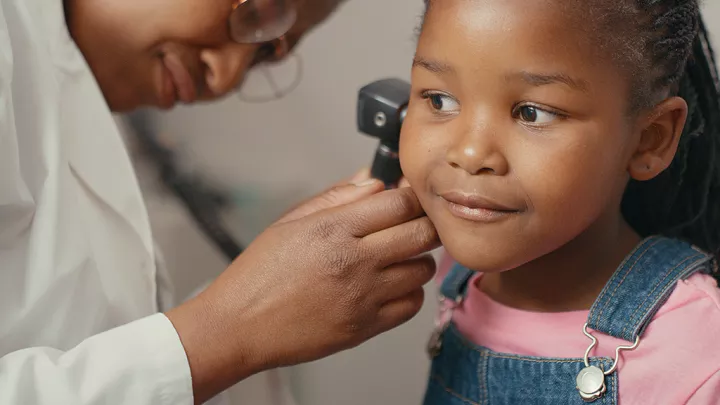
Chemotherapy and Hearing Loss: Until Now, an Unquantified Risk
Imagine that your child has cancer. The oncologist recommends treatment with cisplatin, an effective chemotherapy agent. Though it may save her life, the oncologist explains that permanent hearing loss is a very common side effect of the treatment. The doctor is unable to tell you the likelihood of your child losing some—or all—of her hearing for the rest of her life.
This scenario is not hypothetical for many families. But thanks to research led by Children’s Hospital Los Angeles, things are about to change. A new study led by CHLA researchers reveals that certain variables—like schedules and concentration of chemotherapy delivery—can contribute to hearing loss. The results of the study were published in The Lancet Child & Adolescent Health.
“We found that how we infuse the drug can significantly alter the risk of side effects,” says Etan Orgel, MD, MS, who designed and led the study. “Cisplatin has been used to treat cancers in children and adults for more than fifty years, but for the first time, we have insights into how something as simple as adjusting our dosing approach may prevent hearing loss and still maintain effective treatments.”
Dr. Orgel and a team of investigators, including CHLA’s Diana Moke, MD, MS, collected information from over 1,400 patients treated in hospitals across the United States and Canada. A data pool of this size is no small feat. “Pediatric cancers are rare, so they’re hard to study,” says Dr. Moke, who treats children with many of the included cancers. “We have gathered data from the largest group ever of cisplatin-treated children and adolescents with a wide variety of cancers,” she says. “This information will help us have important conversations with families about the risks they face during therapy.”
Overall, the study showed that 44% of pediatric patients treated with cisplatin suffered from moderate to severe hearing loss. But the data showed that not all treatment schedules came with the same risk. Children who received higher doses of the chemotherapy were more likely to experience hearing loss, even when the total amount of cisplatin over the course of the therapy was the same. The group also uncovered another, previously unknown, risk factor for hearing loss: concurrent use of vincristine, a second chemotherapy agent often added to treatment regimens.
The team addressed another barrier to understanding cisplatin-induced hearing loss: variation in interpreting audiology scores. Many international medical centers categorize hearing loss differently, making direct comparisons impossible. To overcome this issue, the team reviewed all of the study data using the same international consensus system for cisplatin-induced hearing loss (developed by the International Society of Pediatric Oncology), enabling investigators to compare hearing loss using more than 2,000 tests from patients treated at 19 different institutions.
Uncovering how real-world variables affect risk of side effects allows oncologists to better serve each child. “Studies like these are a crucial first step in developing a truly individualized approach to each patient,” says Bruce Carleton, PharmD, who led the Canadian arm of the study. “Data provided by this study will help oncologists identify patients that might be at higher risk of hearing loss so that protective strategies can be considered.“
“We’ve developed these powerful tools to effectively fight cancer,” says Dr. Orgel. “Now we can focus in on how to use these tools in a way that maintains their power but minimizes their footprint.”


